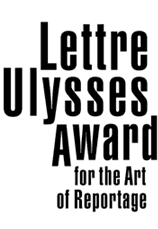
Jean Hatzfeld, France
 “A war is like a river which breaks its banks. It floods all that is around, but it’s still a stream that flows. A genocide is when the river dries out: there is nothing left. As long as I live, I shall return to Nyamata. Even if I know that I will never understand.”
“A war is like a river which breaks its banks. It floods all that is around, but it’s still a stream that flows. A genocide is when the river dries out: there is nothing left. As long as I live, I shall return to Nyamata. Even if I know that I will never understand.”
“Alone, faced with the reality of genocide, a survivor chooses to speak, or to be silent. A survivor who chooses to speak accepts the constant need to question and challenge the confusions of his memories.
Faced with the reality of genocide, a killer’s first choice is to be silent, and his second is to lie. So you cannot plan on questioning him alone. And so I decided—after a string of insipid discussions—to address a group of prisoners who would feel protected from the dangers of truth by their friendship and complicity, a bunch of pals secure in their group identity established before the genocide.”
Reporter, war correspondent, and writer. Jean Hatzfeld was born in Madagascar in 1949, where his father was a teacher. His Jewish parents had moved there seven years earlier, fleeing from the Nazis, but he and his family eventually returned to the Auvergne region.
After having various jobs, Jean Hatzfeld started to work as journalist for the French daily Libération in 1977. He also contributed to other newspapers and magazines, such as L’Autre Journal, Géo, Actuel, Rolling Stones, Autrement; and he has directed four TV documentaries.
As a special correspondent and war reporter, Hatzfeld travelled extensively throughout Eastern European countries, from the advent of Solidarnosc in Poland until the fall of Berlin’s Wall. He covered the ‘Velvet Revolution’ in former Czechoslovakia and the fall of the Ceausescu regime in Romania.
For 25 years, since the end of 1970s, he mainly worked in the war-affected countries of the Middle East, in Lebanon, Israel and recently in Iraq. He spent three years in countries of Former Yugoslavia, between Vukovar and Sarajevo. In Sarajevo he was seriously injured through a Kalashnikov salvo. Hatzfeld published two books set against this background: L'Air de la guerre (1994), evoking his experiences in the former Yugoslavia; and La guerre au bord du fleuve (1999), a novel inspired by the war. He also worked in Haiti, Congo, Algeria, Burundi and Iran.
In 1994, Jean Hatzfeld travelled to Rwanda to report about the massacre there, and its aftermath, for Libération. He later decided to leave daily journalism in order to focus solely on research into the genocide. He published Dans le nu de la vie in 2000, in which he reports the stories of Tutsi survivors. The volume was awarded the Prix Culture 2000, the Prix Pierre Mille and the Prix France Culture. Hatzfeld said that after the publication of his first volume, readers expressed interest in hearing the voices of the Hutu perpetrators. Two years later, his conversations with condemned Hutus culminated in Une Saison de machettes, for which he won the essay category of the Prix Femina in 2003 and the Prix Jossef Kessel in 2004.
Jean Hatzfeld divides his time between Rwanda and Paris.
